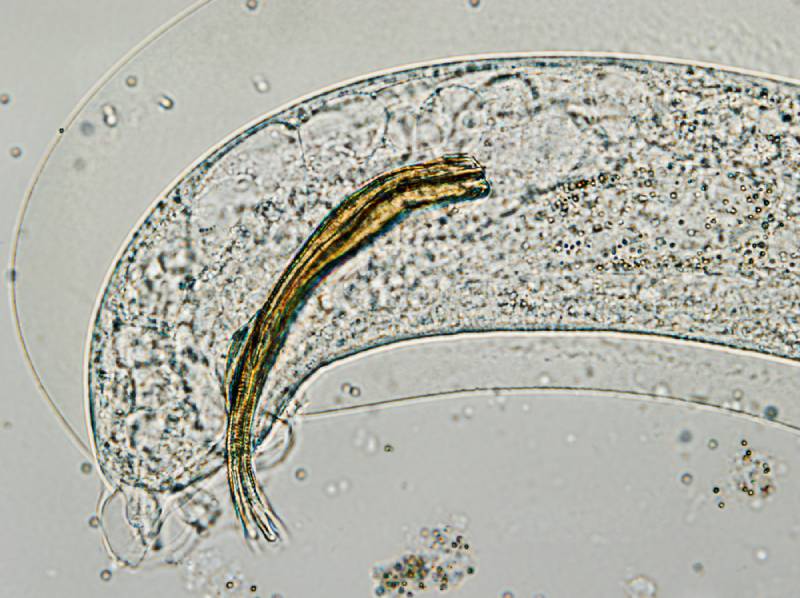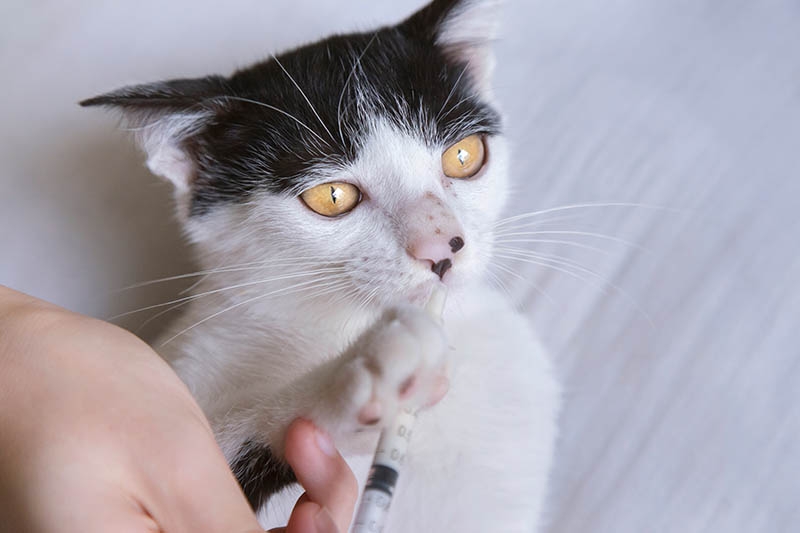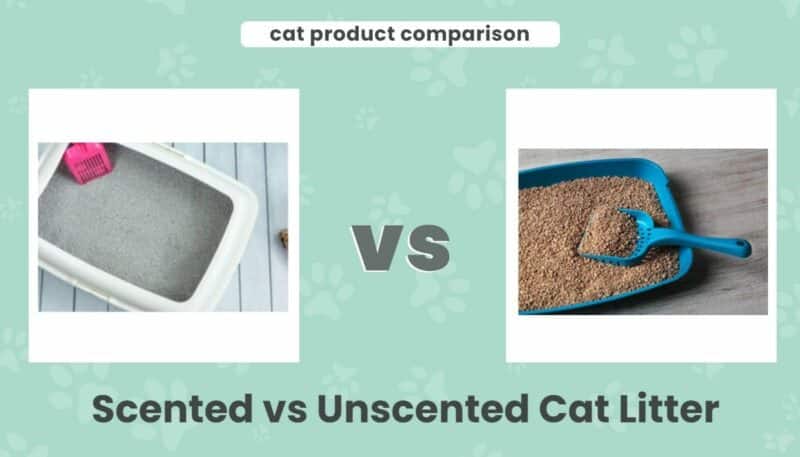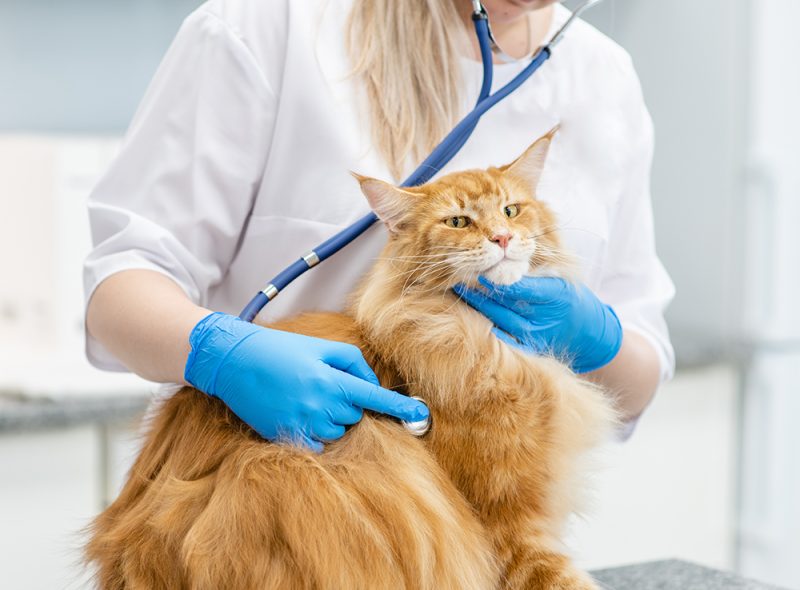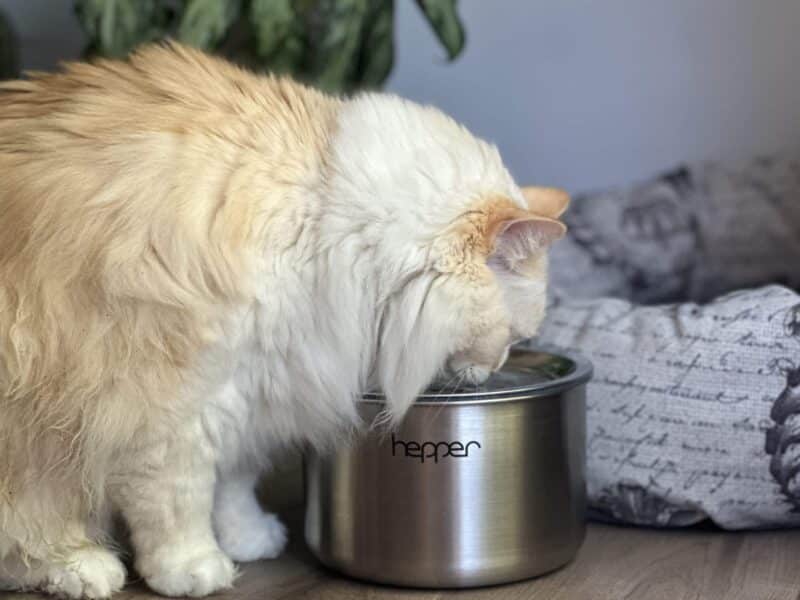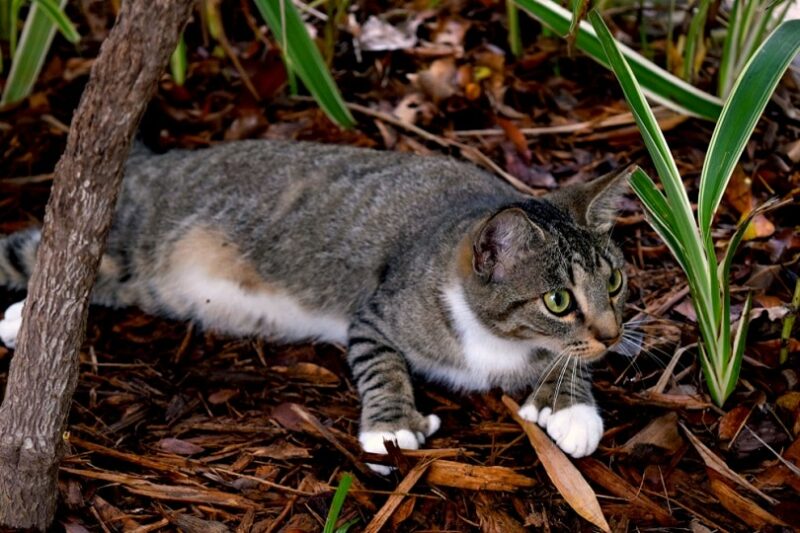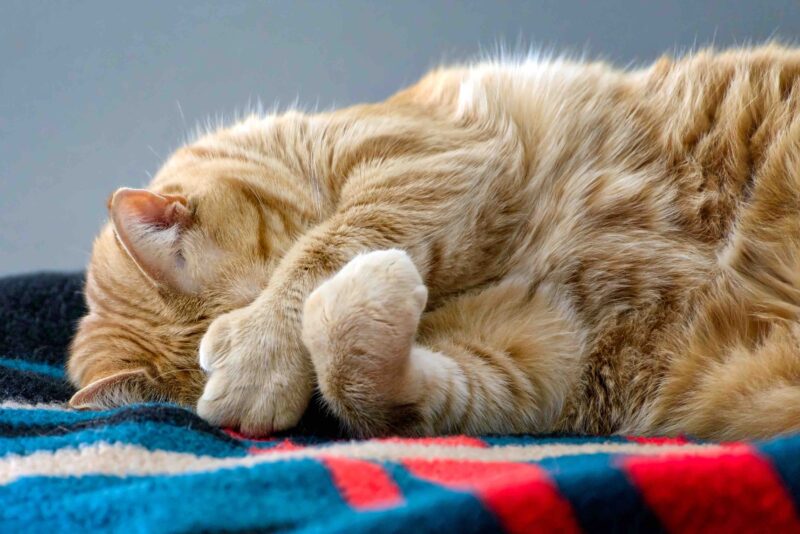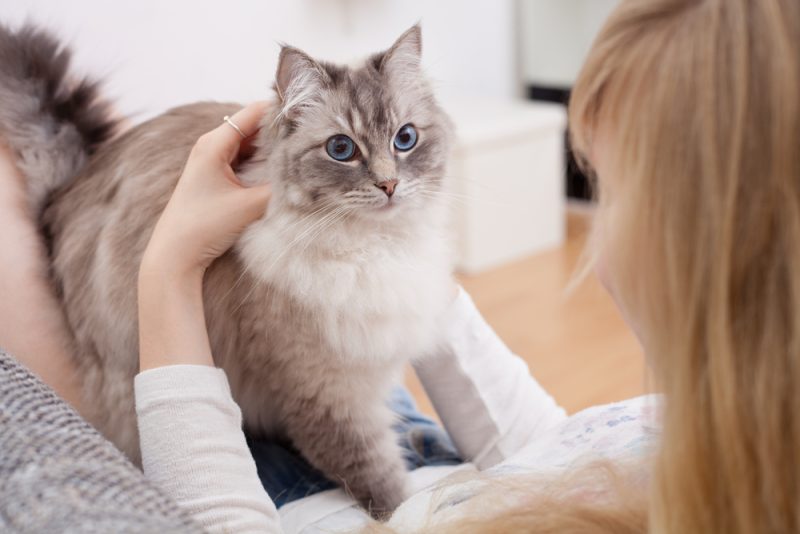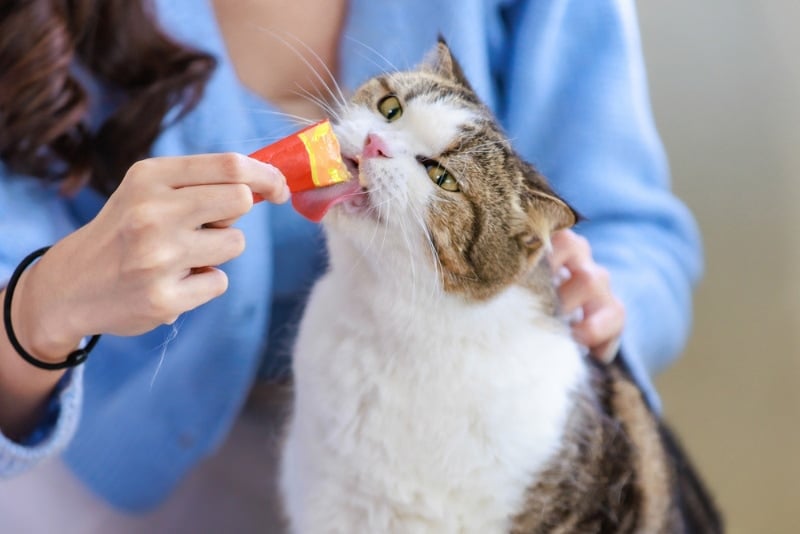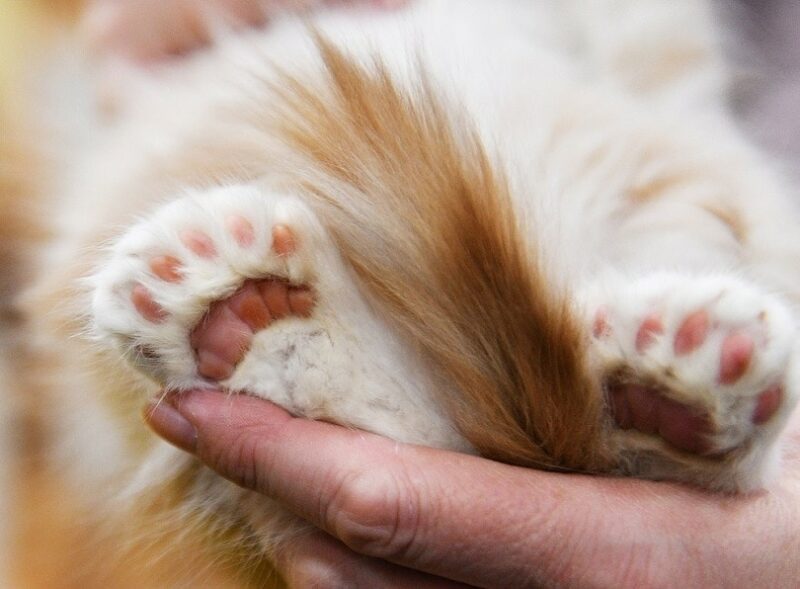Lungworms are a type of parasitic infection seen in cats. Most frequently this is seen in outdoor only, or indoor/outdoor cats, and is most commonly caused by the roundworm parasite. The lungworms will grow and develop in different areas of the respiratory tract, causing issues as they grow and reproduce. Continue reading to learn more about the signs, causes and care of lungworms in cats.

What Is a Lungworm?
Lungworms are most commonly caused by the roundworm. The two most common species of roundworms that cause issues are Eucoleus aerophilus and Aelurostrongylus abstrusus. The Eucoleus aerophilus species lives in the windpipe, or trachea. The Aelurostrongylus abstrusus species lives in the lungs themselves. After the eggs of the roundworm get into the bloodstream, these species will then end up in their respective parts of the respiratory tract. There they will continue to develop into adults that lay more parasitic eggs. As the eggs hatch, they are coughed up, and swallowed, and the life cycle is continued.

What Are the Signs of Lungworms in Cats?
Signs your cat may have a lungworm infection are varied. Some cats will show absolutely no abnormal signs and the eggs are found on routine fecal testing. Other cats may have signs of coughing, an increased respiratory rate, an increased respiratory effort, collapse, or lethargy. As an owner, you may think your cat is trying to cough up a hairball but nothing ever happens. If this behavior persists, there may be other causes of coughing than a hairball. When at rest, your cat should have a relaxed, slow respiratory rate. If you notice that your cat is breathing with a lot of effort (puffing out their chest or abdomen), your cats’ respiratory rate is highly noticeable while they are sleeping, or they are panting at any time, you should seek veterinary care.
Cats with lungworms may develop bronchitis or inflammation of the airways. Others may have secondary pneumonia because of the infection. If your cat has been treated for either of these conditions but continues to cough or have other abnormal respiratory signs, your veterinarian may want to treat them for a potential lungworm infection.
Because many cats will have no abnormal signs, routine fecal testing and exams by your veterinarian are very important. This is especially true of outdoor cats, or indoor and outdoor cats. Even if your cat only goes into your own backyard, being outside exposes them to many types of parasites and infectious agents. Getting your cat on a veterinary prescribed preventative and having annual fecal exams performed may help to find infection in your cat before they become very ill.
Is your cat presenting any of these signs? We suggest you speak with a vet online.
If you need to speak with a vet but can't get to one, head over to PangoVet. It's an online service where you can talk to a vet online and get the advice you need for your pet — all at an affordable price!

What Are the Causes of Lungworms in Cats?
A cat will become infected with the Eucoleus aerophilus species of roundworm by ingesting the eggs or larvae of the worm in feces. This is most common if your cat goes outside and comes into contact with the feces of other infected cats, such as stray cats who may use your garden as a litter box.
The Aelurostrongylus abstrusus species of roundworm need an intermediate host. This means that a gastropod, (snail or slug), that is infected with the parasites is eaten by your cat. It can also occur if your cat eats an animal such as a bird, lizard, or rodent that has eaten the infected gastropod.
Once ingested, the roundworms will develop in the intestinal tract. Once development reaches the larval stage, these can sometimes migrate out of the GI tract and enter the bloodstream. Once in the bloodstream, the larvae will go to the trachea (windpipe) or lungs where development continues into adulthood. As the adult roundworms lay more eggs, these develop into larva which your cat will cough up. As your cat coughs it up, they will swallow it, pass it out into the feces, and restart the lifecycle after another animal ingests the infected feces.
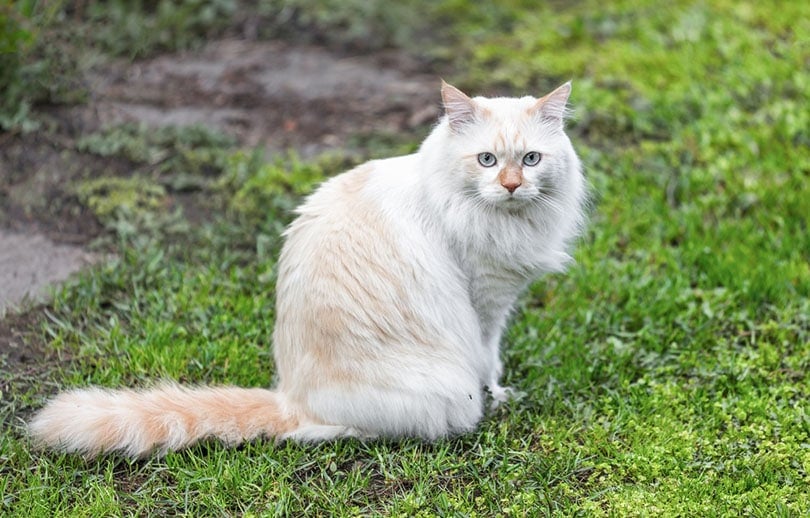
How Do I Care for a Cat With a Lungworm Infection?
Cats with lungworms may at first be diagnosed with bronchitis or pneumonia. If you bring your cat to your veterinarian for coughing, they will likely want to take radiographs of the lungs. Due to the inflammation created by the worms, your cats’ lungs may appear abnormal on X-rays. Your vet will likely put your cat on antibiotics, steroids, or both. These medications may help with inflammation and/or infection that occurs secondary to the parasite infection, but it won’t do anything to help clear the worms, eggs, or larvae.
Your veterinarian will need to prescribe your cat a course of dewormer to help clear the parasite infections. A few weeks to months of dewormer is needed to completely clear the parasite and all its life cycles from your cats’ system. In order to know if your cat is still infected, your veterinarian will also likely send multiple fecal samples to the laboratory. Your vet can do some fecal testing in-house, but for hard-to-diagnose lungworm infections, they will likely want to send the samples to a lab for specialized and more sensitive tests.
While your cat is being treated, you will want to give all medications as prescribed by your veterinarian. Keep a close eye on their breathing and bring them to the veterinarian if they seem to be struggling to breathe, coughing, or collapsing. Keeping your cat inside, away from other cats, and preventing them from scavenging other animals will help to prevent them from either re-infecting themselves or infecting other animals.

Frequently Asked Questions
Can I Prevent Lungworm Infections in My Cat?
Yes! Many veterinary-prescribed preventatives will help to prevent roundworm infections. These same preventatives may also help to prevent fleas and heartworm infections. If your cat goes outside, even if it’s just in your own backyard, a regular prescribed veterinary preventative is recommended.
Another way to help prevent the spread of the disease is to keep your cat inside. Any time your cat comes into contact with other animals’ feces is a chance for infection. If your cat likes to stalk your bird feeders or small rodents outside is also a chance they may become infected.
Is Treatment Expensive for Lungworm?
Prescription deworming medication overall is very affordable. However, diagnosing your cat and follow-up appointments can add up in cost. Because your cat may be coughing, your veterinarian may want to perform diagnostic and follow-up X-rays. Also, follow-up fecal exams will need to be sent to the laboratory until your cat no longer shows any signs of infection. If finances are a concern, be honest with your veterinarian so they can focus resources on the best treatment for your cat.

Conclusion
While lungworm infection is overall a very uncommon disease, it’s not unheard of. Cats who go outside at any time, especially those who like to scavenge small animals outside, are at the biggest risk for infection. Some cats show absolutely no abnormal signs. Others may cough or have difficulty breathing and may develop bronchitis or pneumonia secondary to the parasites. Treatment is aimed at eliminating the worms and all of their life cycles while supporting your cat through any respiratory difficulty. Getting your cat on a regular veterinary prescription preventative and keeping them inside can greatly reduce their risk of lungworm.
Featured Image Credit: Todorean-Gabriel, Shutterstock
